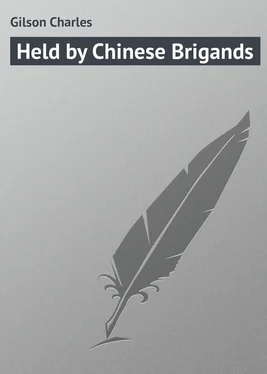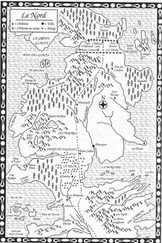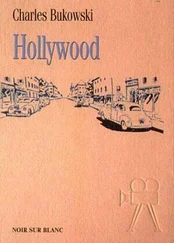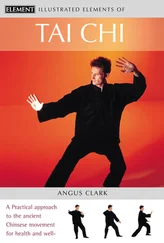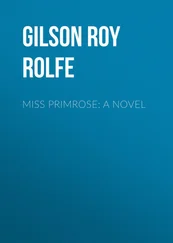Charles Gilson - Held by Chinese Brigands
Здесь есть возможность читать онлайн «Charles Gilson - Held by Chinese Brigands» — ознакомительный отрывок электронной книги совершенно бесплатно, а после прочтения отрывка купить полную версию. В некоторых случаях можно слушать аудио, скачать через торрент в формате fb2 и присутствует краткое содержание. Жанр: Прочие приключения, foreign_prose, на английском языке. Описание произведения, (предисловие) а так же отзывы посетителей доступны на портале библиотеки ЛибКат.
- Название:Held by Chinese Brigands
- Автор:
- Жанр:
- Год:неизвестен
- ISBN:нет данных
- Рейтинг книги:3 / 5. Голосов: 1
-
Избранное:Добавить в избранное
- Отзывы:
-
Ваша оценка:
- 60
- 1
- 2
- 3
- 4
- 5
Held by Chinese Brigands: краткое содержание, описание и аннотация
Предлагаем к чтению аннотацию, описание, краткое содержание или предисловие (зависит от того, что написал сам автор книги «Held by Chinese Brigands»). Если вы не нашли необходимую информацию о книге — напишите в комментариях, мы постараемся отыскать её.
Held by Chinese Brigands — читать онлайн ознакомительный отрывок
Ниже представлен текст книги, разбитый по страницам. Система сохранения места последней прочитанной страницы, позволяет с удобством читать онлайн бесплатно книгу «Held by Chinese Brigands», без необходимости каждый раз заново искать на чём Вы остановились. Поставьте закладку, и сможете в любой момент перейти на страницу, на которой закончили чтение.
Интервал:
Закладка:
Gilson Charles
Held by Chinese Brigands
CHAPTER I-HOW HENNESSY K. WALDRON "TRIPPED AROUND"
We have heard it said, by those who are widely travelled, that there are three beautiful harbours in the world: Rio de Janeiro, in Brazil; Sydney Harbour, and-most beautiful of all-the harbour of Hong-Kong.
The famous Peak rises above the town of Victoria and, at a height of about two thousand feet, buries its crest in the clouds. The harbour itself is in the shape of a crescent, enclosing the red, bare hills of Kow-lung. By day, from Lyemun to Stonecutter's Island, ferry-boats, sampans , wupans and launches scurry here and there, in and out among the great anchored men-of-war, like so many mice romping in a cage of sleeping tigers.
The slopes of the mountain are green with palm-trees, mango, orange and lichen, in the midst of which can be seen innumerable white, flat-roofed villas, each with its upper-story verandah and green-latticed windows. To the east the hills are more rugged; streams, traced through the glens by straggling brushwood, descend in a succession of waterfalls to the level of the sea. In the Pass of Lyemun the traveller finds himself in the midst of an inhospitable grandeur, similar to that of the western Scottish isles.
It is, however, by night that Hong-Kong Harbour is at its best. With a sky of a million stars, and the pale, round China moon hanging like a lantern in the midst of the heavens, reflecting its light upon the surface of the dark, tranquil water, the moving lights upon the sampans and the countless lanterns in the streets of China town, this place is surely one of the most romantic in the world. Here the Far East and the West touch; it is the one place in all China where the foothold of the European is secure.
Upon this beautiful island, with its rugged hills and feathery palms, the white man stands, under his own flag-as it were, upon the very threshold of the mysterious, eternal "Middle Kingdom." Over the way, to the north-west, is the great estuary of the Canton river, the Chau-kiang-the main trade highway of the south. Canton itself, a city of two and a half million inhabitants, lies at the junction of three rivers, which meet almost at right angles: the first flowing from the east, the second from the north, and the third-and greatest-from the west. Canton is a city of mysteries and marvels; it is a city of many industries, insufferable heat, intolerable smells, and almost unbelievable devilry and crime.
The whole of the great province of Kwangsi and the eastern portion of Yunnan is drained by the West River and its hundreds of tributaries. These tributaries for the most part find their sources upon the watershed of the Nan-ling Mountains, which extend from the Tung-ting Lake to the city of Kin-yuen, a distance of over five hundred miles.
Of that great stretch of country little or nothing is known. Thanks to the early Jesuit explorers, we are provided with excellent maps. But a map is no more than a coloured piece of paper which-at the best-is backed with linen. Names in themselves convey nothing. Though you study the map of China for a fortnight you will know less of the Si-kiang, or West River, than the naval lieutenant who ran his gunboat past Wu-chau, and blew the mud huts of a pirate village into a dust-heap with the pound-and-a-half shells of his Maxim-Nordenfeldt. For, if to this day there are wild men anywhere upon the face of the earth, who know neither mercy nor pity nor the laws of God or man, they are to be found in the tract of country that lies between the West River and the Nan-ling Mountains to the north. And thither we are about to journey, into the midst of a land that is by no means a wilderness, but which is populated for the most part by peaceable, hard-working peasants.
There are, however, certain members of the community who are neither peaceable nor industrious, who care no more for the gunboats of His Britannic Majesty upon the wide reaches of the river than they do for the yamen of the Viceroy of Canton, who so terrorise the province that each honest man knows that it is more than his life is worth to give information against them.
The chiefs of these pirates or brigands are, as often as not, highly educated Chinese, sometimes entitled to wear the blue or red button of a mandarin. They hold sway by dint of their cruelty and their cunning.
Such a man was Cheong-Chau, whose headquarters were established in the town of Kong-chin, at the foot of the mountains. Thence he and his men were wont to descend to Pinglo, where they would board a sea-going junk, in which they would steal past Wu-chau to Canton, and thence to the open sea, to rob fishing-junks and sometimes even cargo ships. If they passed a gunboat or destroyer upon the broad waters of the estuary they were simple fishermen, on a cruise to Macao or Amoy. But under their fishing nets and tackle was always a veritable armoury of blood-curdling cutlasses and knives.
For the time being we will leave this cutthroat resting on his ill-gotten wealth, dazed from opium in a filthy den in the city of Pinglo, and return to the sublime and tranquil beauty of the harbour of Hong-Kong. There we are to meet a gentleman of appearance more personable, and personality more engaging, than the redoubtable Cheong-Chau. We refer to Mr Hennessy K. Waldron, of Paradise City, Nevada, U.S.A.
Mr Waldron was engaged upon what he termed a "trip around." He had made a pile of money out of cattle, silver, a patent egg-whisk, and pigs. His "trip around" had already lasted two and a half years. He had been to London, Paris, Switzerland, and Venice. He knew the height of the dome of St Paul's Cathedral, the number of bricks in the Mont Cenis tunnel, and the names of all the famous Venetian painters. He had gazed at the Pyramids, he had contemplated the Coliseum, and standing upon the Bridge of Sighs in Venice, he had quoted Byron, sentimentalising over the narrow stretch of water that divides the Doges' Palace from the gloomy dungeon to the right.
And wherever Hennessy K. Waldron had been he had been well received. Before leaving New York he had taken the precaution of arming himself with so many letters of introduction to influential persons in all parts of the world that he was obliged to carry them about with him in a large tin-lined box. He had not been two hours in Hong-Kong before he had called upon his Excellency the Governor, Sir John Macintosh-with the accent, according to Mr Waldron, on the "Sir."
He had also a letter from the British Ambassador in Washington to Sir Thomas Armitage, the Chief Justice of the Colony, upon whose verandah he was now seated, with his legs sprawled out in front of him, a Manila cheroot in the corner of his mouth and a whisky-and-soda at his elbow. Hennessy K. Waldron believed in "tripping around" in comfort.
"Judge," said he, "I've scheduled Hong-Kong for a six weeks' stay. Calculate I can do South China in that time?"
Sir Thomas smiled and shook his head.
"Mr Waldron," he replied, "you can't 'do' South China in six years, and you'll know precious little about it even at the end of sixty."
"Waal, I guess I'm not slow in the uptake. I can run my eye over the Tower of London, the Matterhorn, or the Louvre, in less time than a New York elevator would take to conduct you to the thirteenth story of the Flat Iron Building. And, sir, I'm speaking of things I know. Guess I've got face value out of every dollar's worth of shoe leather I ever purchased, or I never knew the difference between glue and honey."
"That may very well be," said the judge, "but there is so much about China to learn, so much that is confusing, and even contradictory, that I must confess, even after thirty years in the country, I know very little about it."
Читать дальшеИнтервал:
Закладка:
Похожие книги на «Held by Chinese Brigands»
Представляем Вашему вниманию похожие книги на «Held by Chinese Brigands» списком для выбора. Мы отобрали схожую по названию и смыслу литературу в надежде предоставить читателям больше вариантов отыскать новые, интересные, ещё непрочитанные произведения.
Обсуждение, отзывы о книге «Held by Chinese Brigands» и просто собственные мнения читателей. Оставьте ваши комментарии, напишите, что Вы думаете о произведении, его смысле или главных героях. Укажите что конкретно понравилось, а что нет, и почему Вы так считаете.
